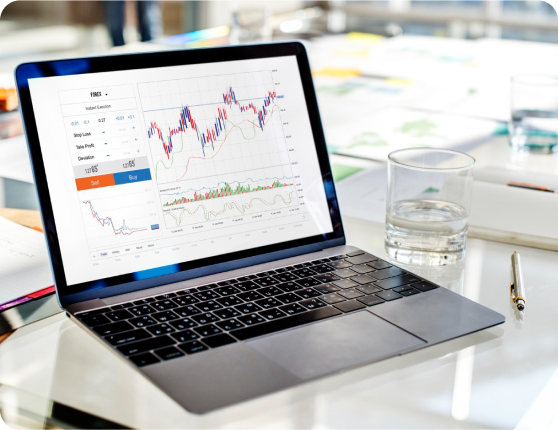Why TradeSmart is the best choice for Trading Forex
Leverage up to
$4 round turn
Trade
STP Order Execution
Spreads from
Live Currency Prices
| SELL | BUY | SPREAD | ||
|---|---|---|---|---|
|
|
Trade |
Find out more about Forex Trading
If you have questions about Forex trading, we have the answers! Check out our Frequently Asked Questions. If you don’t find the answer you’re looking for, please don’t hesitate to contact customer support team.
Forex trading is the act of buying and selling currencies to profit from changes in exchange rates. It involves trading currency pairs like EUR/USD, where one currency is exchanged for another. Traders speculate on whether one currency will strengthen or weaken against another, using tools like leverage and analysis. The market operates 24 hours a day on weekdays and is the largest, most liquid financial market in the world.
Forex trading works by exchanging one currency for another in pairs (e.g., EUR/USD), aiming to profit from price movements. If a trader believes the euro will rise against the dollar, they buy EUR/USD; if they think it will fall, they sell it. Profits or losses are made based on how the exchange rate changes. Trades are typically done through online brokers, using leverage to control larger positions with less capital.
The Forex market includes a wide range of participants. Central banks and governments influence currency value through monetary policy. Commercial banks and financial institutions trade large volumes for clients and profit. Corporations exchange currencies to conduct international business. Hedge funds and asset managers trade for investment returns, while retail traders—individuals using online platforms—speculate on price movements. Together, these participants drive the liquidity and dynamics of the global currency market.
Currency market prices are determined by supply and demand in the global Forex market. Factors influencing this balance include interest rates, economic data (like inflation, employment, and GDP), political stability, central bank policies, and market sentiment. When demand for a currency rises—due to strong economic performance or higher interest rates—its value increases relative to others. Since Forex is a decentralized, over-the-counter market, prices are constantly updated by banks, brokers, and liquidity providers around the world.

